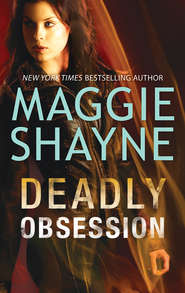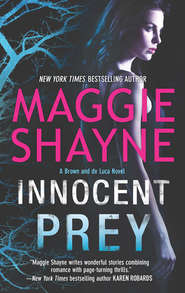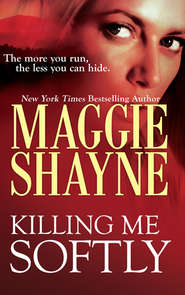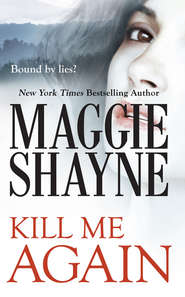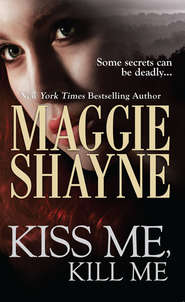По всем вопросам обращайтесь на: info@litportal.ru
(©) 2003-2025.
✖
Embrace The Twilight
Настройки чтения
Размер шрифта
Высота строк
Поля
W hen he woke, the first thought in Will’s mind was that Sarafina was no longer asleep in her bed. She was gone. He was alone.
But then reality set in. He wasn’t in the mystical world his mind had created as an escape for him. No, he was in real time. There was pain here, throbbing, burning pain, and bone-chilling cold. He was locked inside a metal box, in a dark cave, in the middle of hostile terrain.
Part of his mind, the fevered part that had confused his dream with something real, wanted to return to the fantasyland of the Gypsies. But most of him was aware that he couldn’t do that, not now. He didn’t know where the hell his mind was getting the stories it wove for him. They seemed so real it was difficult to believe they were not. But they couldn’t be.
He was soaked in sweat. He understood what that suggested. The fever he’d been fighting must have peaked while he’d been sleeping. Normally he didn’t dream about Sarafina and her band of Gypsies. He escaped to that realm only under torture.
Hell, his fever, combined with the pain in his foot, must have felt like torture of a sort to have instigated a dream so vivid. And it had added its own new twists, hadn’t it? Now he was seeing vampires and making love to a figment of his imagination.
He moved slowly, carefully, testing his body, stretching his arms, his back, working out the kinks. Then he went still as he remembered what he’d been doing when he’d fallen asleep: waiting for his captors to fall asleep first. Because once they had, he had to make an attempt to get the hell out of here.
It might very well be his only chance. He knew damned well the terrorists’ newest ploy wasn’t going to work. The U.S. government would be happy to learn he was alive when they got that photo, but that didn’t mean they would be foolish enough to release a pile of terrorists in exchange for the life of one soldier. Especially one like him, with no family, no ties. Hell, the general public back in the good ol’ U.S. of A. would probably never even know about his existence. That was part of the reason he had been chosen for this mission, and he’d known that going in. He had nothing to lose.
He crept to the door, pushed it open as far as it would go, listened with every cell in his body and squinted into the darkness.
The room appeared to be empty, though it was so damned dark it was impossible to be sure. It was dead silent. The entire cave seemed soundless tonight.
He located the bread knife he’d stolen earlier by crawling around his box on all fours until his fingers touched it in the darkness and closed around it. Returning to the chained door, he forced his hand out through the narrow opening. The chain that held the door was looped through a short iron bar on the outside of the door. Two bolts held that bar in place, and they had grooved heads, like screws. Will managed to insert the blunt tip of the knife into the groove, and he twisted it, while holding the nut on the inside with his fingers. It didn’t turn easily. When it finally did, the nut turned with it, so he held it more tightly. So tightly that when he finally did get the bolt to turn, the nut scraped the skin off his fingers. It was old, rusty, but he worked on it until he freed it up. In about twenty minutes it was loose enough to remove.
His fingers throbbed, his throat burned, and he was so dizzy he could barely stand, but he’d gone too far to stop now. He set to work on the second bolt.
An hour later, the chain was free. He pocketed his scrap of bread and his lifesaving bread knife, and pushed the door open, cringing at the slight creak of its hinges. He looked around but saw only darkness, broken up by darker shapes, none of them human. Carefully he climbed out of his prison, then closed the door. Taking the bolts from his pockets, he held the bar in place and thrust the bolts back through the holes. By all appearances, his prison was unchanged. Until they tried to open the door to bring him out again-something they might not do for a span of days if they were true to form-they wouldn’t know he had escaped.
He’d wrapped his injured foot thickly in the white makeshift bandage, so it was at least cushioned. He had no choice but to put weight on it as he made his way slowly, silently, across the uneven stone floor. He knew approximately where the opening was that led to other parts of the cave. There was only one, so it wasn’t a matter of making a choice. He found it, went through it, but had no clue where to go from there. He couldn’t see a damn thing. He only knew he wasn’t far from the entrance-if he’d been deep in the earth the temperature would have held to a moderate level, never varying much higher or lower. And that hadn’t been the case.
He was still for a long moment, wishing silently for a clue-and then he heard something: a whispering, moaning sound. The wind? Yes, it was the wind! God, please, he thought, guide me out of this hell. Slowly he moved toward the sound. Every once in a while he would meet a stone wall. Each time that happened, he had to feel his way along the wall, inching sideways until it fell away, and he could again make forward progress.
Finally he saw light, flickering in the distance, illuminating a ragged opening in the cave. He rushed toward it, despite the screaming pain every step ignited in his foot, hope surging in his chest for the first time since he’d escaped the box. But when he reached that opening, he stopped dead, even stopped breathing.
The light came from a small fire in the center of a large room. Around the sides of the room, a dozen or more men lay sleeping, breathing deeply, some of them snoring every once in a while. And just beyond them there was another break, through which he could see stars twinkling in the night sky.
Freedom.
He could smell it, taste it in the air. God, he was so close. Will swallowed hard. Everything in him screamed at him to run for that door, for freedom, but he knew better. He had to think, to use his fever-fogged brain to get himself out of here alive. Licking his parched lips, he looked around at the men on the floor. Most wore robes, others were covered in blankets. But here and there he saw men wearing uniforms. American uniforms. He guessed they had probably taken them from the handful of U.S. troops they’d managed to take out by ambush during the height of the conflict.
Crouching low, Will unwrapped the white cloth from his foot, trying not to make a sound as he did. Then he wrapped it around his head instead, turban-style. He wished to God they hadn’t made him shave. To conceal his beardless chin, he let one end of the turban hang down, then drew it up, just under his chin and tucked it in on the other side.
Finally he moved forward. His foot exploded in agony with each step-even more now, without its protective wrap, than before. But he kept going, gritting his teeth and not making a sound. He moved among the sleeping soldiers, made it past the fire, reached the opening.
One of the soldiers muttered in his sleep and rolled over, and Will went so still he thought his muscles would pull away from his bones.
He waited, waited for a shout, a challenge, the back of his neck tingling in anticipation. But nothing came.
Finally, his heart still pounding, he moved forward again. He stepped through the opening. The fresh night air hit his face, and he sucked it in gratefully as he continued limping, laterally now, away from the cave. Finally he had to pause, to try to get his bearings.
He was high on a mountain, and he had no idea which way would lead him to freedom. There were no roads out here, no landmarks. Certainly no lights shining from below to guide the way.
He was thirty yards from the cave, on a stone ledge that dropped off steeply, when a man’s voice reached him from behind, speaking in one of the tribal dialects. “Where are you going in the middle of the night? Is something wrong?”
He froze. He didn’t turn. He swallowed his fear, told himself not to blow it, not now, not when he was this close. He replied in the man’s own tongue. “Did you not hear the gunfire?” he asked. “It was coming from this way.” He pointed ahead of him, toward the edge, and downward.
“Gunfire?”
“Yes, I’m sure of it. Maybe the Americans have come back.”
The other man sucked in a breath of alarm. Then he said, “But it cannot be the Americans. The border is east of here, not west. And they could only come from that way.” He sighed. “I should wake Ahkmed.”
“Wait,” Will said. “I see something. Down there. Look!”
The man came hurrying closer and ran right past Will to stand in front of him, peering off into the distance, down over the steep precipice into utter darkness. “Where? I don’t see anything.”
In one smooth, silent motion Will stepped forward, clapped a hand to the man’s mouth, put the other to the back of his head and jerked it roughly, fiercely, to the side. The man’s neck snapped with a sickening crack, and his body went limp. Lowering him to the ground, Will bent over him, gripped his shoulders, and dragged him into the cover of some nearby boulders.
As quickly as he could, Will stripped the body of everything on it, which included a rifle, some ammo, a large curving blade with a sheath and the robes of the man’s tribe. Will put the robes on over the clothes he wore. He intended to use the man’s shoes, as well, American-issue Army boots, but they were far too small. His injured foot wouldn’t have fit into any shoe, even had it been a few sizes too large, anyway. He did take the socks, putting them both on his good foot. Then he rewrapped his injured one in swaths of the dead man’s turban before peering out from the sheltering rocks, sitting very still, looking and listening.
No sounds reached him from the cave. He dragged the body to the edge and tossed it over the side. It fell in near silence, except for the dull, distant thud when it hit bottom. Then Will began making his way down the mountain, heading in the direction he surmised, from the other man’s comments, was east.
When he reached the bottom, he just walked. He used the rifle as a staff, and walked despite the pain of his foot and the raging fever. He wondered if it would be better to make use of the large blade, leave the foot behind before it killed him. But he was afraid to stop long enough to do it and worried that he would never get going again if he did.
So he walked. The sun rose, and with its first touch, it burned away the night’s cold. He welcomed its warmth for a short time; then he cursed it, as it blazed relentlessly down on him. The mountain was far behind him. He’d made his way from it, down into the desert, and the farther he walked, the hotter it became. He was dehydrated already from lack of water, illness and fever. The way the sun blasted him now, he thought he would soon be reduced to a man-shaped pile of dust. But the sun did serve one useful purpose. It allowed him to gauge his direction.
At least it did until it was directly overhead and he was frying like bacon in a pan. He tried to keep moving, keep on course, just plodding, putting one foot in front of the other. He had no idea how long he managed to keep going, or how much distance he had covered, when he finally fell facedown in the sand.
He lay there, clinging to consciousness with everything in him, knowing that if he passed out there, he would die there. The vultures would pick his bones clean. He tried to get up, and, failing that, he tried to crawl.
And then he passed out.
When he opened his eyes, he was lying beside Sarafina, watching as she stirred slowly awake. She looked pale, Will thought. Her face tight, there were dark rings beneath her beautiful eyes.
She sat up, looking around her, frowning at the beam of sunlight that slanted through an open spot in the tent flap. She got up and went to it, pushed it open and peered at the sky. “Already so late. The day is nearly done, and I’ve slept it away yet again.”
Sighing, lowering her head and the flap at the same time, she turned, reaching for the dress she’d left hanging from a nail in the wall, then thinking better of it, and taking, instead, the green velvet robe and pulling it on over the white nightgown she wore. She thought of the nightgown as a shift. It was more like an elaborate slip, with lots of lace and embroidery.
She smoothed her untamable curls with her hands, glancing back at the bed just once and smiling gently as she remembered her dream of the night before. “My beloved spirit,” she whispered. “I wonder if he’ll come to me again tonight.”
“I’m here. I’m here right now,” Will told her, but she didn’t hear him. She only turned again, parted the tent flap, stepping outside this time, down the folding steps of her wagon, until her bare feet touched the ground. Will floated along, as if attached to her somehow. She was looking around the camp, noting the smoldering, charred remains of yet another wagon-tent and frowning as Andre came up to her. Will bristled. He hated the man.
“Fina, we’ve been so worried. Are you better now?”
She frowned at him. “Better?”
“We could only assume you were ill. Why else would you sleep the entire day?”
She shrugged. “I was up very late tending to Belinda. I was only tired. I’m not ill.”
She would have walked on, but he caught her chin, lifting her face to his as if he would kiss her, but instead he only studied her closely. “You do not look well, Sarafina. I think you are ill and only denying it.”
“I wouldn’t lie to you, Andre.” She moved closer, as if to press her mouth to his, but he turned away quickly.
But then reality set in. He wasn’t in the mystical world his mind had created as an escape for him. No, he was in real time. There was pain here, throbbing, burning pain, and bone-chilling cold. He was locked inside a metal box, in a dark cave, in the middle of hostile terrain.
Part of his mind, the fevered part that had confused his dream with something real, wanted to return to the fantasyland of the Gypsies. But most of him was aware that he couldn’t do that, not now. He didn’t know where the hell his mind was getting the stories it wove for him. They seemed so real it was difficult to believe they were not. But they couldn’t be.
He was soaked in sweat. He understood what that suggested. The fever he’d been fighting must have peaked while he’d been sleeping. Normally he didn’t dream about Sarafina and her band of Gypsies. He escaped to that realm only under torture.
Hell, his fever, combined with the pain in his foot, must have felt like torture of a sort to have instigated a dream so vivid. And it had added its own new twists, hadn’t it? Now he was seeing vampires and making love to a figment of his imagination.
He moved slowly, carefully, testing his body, stretching his arms, his back, working out the kinks. Then he went still as he remembered what he’d been doing when he’d fallen asleep: waiting for his captors to fall asleep first. Because once they had, he had to make an attempt to get the hell out of here.
It might very well be his only chance. He knew damned well the terrorists’ newest ploy wasn’t going to work. The U.S. government would be happy to learn he was alive when they got that photo, but that didn’t mean they would be foolish enough to release a pile of terrorists in exchange for the life of one soldier. Especially one like him, with no family, no ties. Hell, the general public back in the good ol’ U.S. of A. would probably never even know about his existence. That was part of the reason he had been chosen for this mission, and he’d known that going in. He had nothing to lose.
He crept to the door, pushed it open as far as it would go, listened with every cell in his body and squinted into the darkness.
The room appeared to be empty, though it was so damned dark it was impossible to be sure. It was dead silent. The entire cave seemed soundless tonight.
He located the bread knife he’d stolen earlier by crawling around his box on all fours until his fingers touched it in the darkness and closed around it. Returning to the chained door, he forced his hand out through the narrow opening. The chain that held the door was looped through a short iron bar on the outside of the door. Two bolts held that bar in place, and they had grooved heads, like screws. Will managed to insert the blunt tip of the knife into the groove, and he twisted it, while holding the nut on the inside with his fingers. It didn’t turn easily. When it finally did, the nut turned with it, so he held it more tightly. So tightly that when he finally did get the bolt to turn, the nut scraped the skin off his fingers. It was old, rusty, but he worked on it until he freed it up. In about twenty minutes it was loose enough to remove.
His fingers throbbed, his throat burned, and he was so dizzy he could barely stand, but he’d gone too far to stop now. He set to work on the second bolt.
An hour later, the chain was free. He pocketed his scrap of bread and his lifesaving bread knife, and pushed the door open, cringing at the slight creak of its hinges. He looked around but saw only darkness, broken up by darker shapes, none of them human. Carefully he climbed out of his prison, then closed the door. Taking the bolts from his pockets, he held the bar in place and thrust the bolts back through the holes. By all appearances, his prison was unchanged. Until they tried to open the door to bring him out again-something they might not do for a span of days if they were true to form-they wouldn’t know he had escaped.
He’d wrapped his injured foot thickly in the white makeshift bandage, so it was at least cushioned. He had no choice but to put weight on it as he made his way slowly, silently, across the uneven stone floor. He knew approximately where the opening was that led to other parts of the cave. There was only one, so it wasn’t a matter of making a choice. He found it, went through it, but had no clue where to go from there. He couldn’t see a damn thing. He only knew he wasn’t far from the entrance-if he’d been deep in the earth the temperature would have held to a moderate level, never varying much higher or lower. And that hadn’t been the case.
He was still for a long moment, wishing silently for a clue-and then he heard something: a whispering, moaning sound. The wind? Yes, it was the wind! God, please, he thought, guide me out of this hell. Slowly he moved toward the sound. Every once in a while he would meet a stone wall. Each time that happened, he had to feel his way along the wall, inching sideways until it fell away, and he could again make forward progress.
Finally he saw light, flickering in the distance, illuminating a ragged opening in the cave. He rushed toward it, despite the screaming pain every step ignited in his foot, hope surging in his chest for the first time since he’d escaped the box. But when he reached that opening, he stopped dead, even stopped breathing.
The light came from a small fire in the center of a large room. Around the sides of the room, a dozen or more men lay sleeping, breathing deeply, some of them snoring every once in a while. And just beyond them there was another break, through which he could see stars twinkling in the night sky.
Freedom.
He could smell it, taste it in the air. God, he was so close. Will swallowed hard. Everything in him screamed at him to run for that door, for freedom, but he knew better. He had to think, to use his fever-fogged brain to get himself out of here alive. Licking his parched lips, he looked around at the men on the floor. Most wore robes, others were covered in blankets. But here and there he saw men wearing uniforms. American uniforms. He guessed they had probably taken them from the handful of U.S. troops they’d managed to take out by ambush during the height of the conflict.
Crouching low, Will unwrapped the white cloth from his foot, trying not to make a sound as he did. Then he wrapped it around his head instead, turban-style. He wished to God they hadn’t made him shave. To conceal his beardless chin, he let one end of the turban hang down, then drew it up, just under his chin and tucked it in on the other side.
Finally he moved forward. His foot exploded in agony with each step-even more now, without its protective wrap, than before. But he kept going, gritting his teeth and not making a sound. He moved among the sleeping soldiers, made it past the fire, reached the opening.
One of the soldiers muttered in his sleep and rolled over, and Will went so still he thought his muscles would pull away from his bones.
He waited, waited for a shout, a challenge, the back of his neck tingling in anticipation. But nothing came.
Finally, his heart still pounding, he moved forward again. He stepped through the opening. The fresh night air hit his face, and he sucked it in gratefully as he continued limping, laterally now, away from the cave. Finally he had to pause, to try to get his bearings.
He was high on a mountain, and he had no idea which way would lead him to freedom. There were no roads out here, no landmarks. Certainly no lights shining from below to guide the way.
He was thirty yards from the cave, on a stone ledge that dropped off steeply, when a man’s voice reached him from behind, speaking in one of the tribal dialects. “Where are you going in the middle of the night? Is something wrong?”
He froze. He didn’t turn. He swallowed his fear, told himself not to blow it, not now, not when he was this close. He replied in the man’s own tongue. “Did you not hear the gunfire?” he asked. “It was coming from this way.” He pointed ahead of him, toward the edge, and downward.
“Gunfire?”
“Yes, I’m sure of it. Maybe the Americans have come back.”
The other man sucked in a breath of alarm. Then he said, “But it cannot be the Americans. The border is east of here, not west. And they could only come from that way.” He sighed. “I should wake Ahkmed.”
“Wait,” Will said. “I see something. Down there. Look!”
The man came hurrying closer and ran right past Will to stand in front of him, peering off into the distance, down over the steep precipice into utter darkness. “Where? I don’t see anything.”
In one smooth, silent motion Will stepped forward, clapped a hand to the man’s mouth, put the other to the back of his head and jerked it roughly, fiercely, to the side. The man’s neck snapped with a sickening crack, and his body went limp. Lowering him to the ground, Will bent over him, gripped his shoulders, and dragged him into the cover of some nearby boulders.
As quickly as he could, Will stripped the body of everything on it, which included a rifle, some ammo, a large curving blade with a sheath and the robes of the man’s tribe. Will put the robes on over the clothes he wore. He intended to use the man’s shoes, as well, American-issue Army boots, but they were far too small. His injured foot wouldn’t have fit into any shoe, even had it been a few sizes too large, anyway. He did take the socks, putting them both on his good foot. Then he rewrapped his injured one in swaths of the dead man’s turban before peering out from the sheltering rocks, sitting very still, looking and listening.
No sounds reached him from the cave. He dragged the body to the edge and tossed it over the side. It fell in near silence, except for the dull, distant thud when it hit bottom. Then Will began making his way down the mountain, heading in the direction he surmised, from the other man’s comments, was east.
When he reached the bottom, he just walked. He used the rifle as a staff, and walked despite the pain of his foot and the raging fever. He wondered if it would be better to make use of the large blade, leave the foot behind before it killed him. But he was afraid to stop long enough to do it and worried that he would never get going again if he did.
So he walked. The sun rose, and with its first touch, it burned away the night’s cold. He welcomed its warmth for a short time; then he cursed it, as it blazed relentlessly down on him. The mountain was far behind him. He’d made his way from it, down into the desert, and the farther he walked, the hotter it became. He was dehydrated already from lack of water, illness and fever. The way the sun blasted him now, he thought he would soon be reduced to a man-shaped pile of dust. But the sun did serve one useful purpose. It allowed him to gauge his direction.
At least it did until it was directly overhead and he was frying like bacon in a pan. He tried to keep moving, keep on course, just plodding, putting one foot in front of the other. He had no idea how long he managed to keep going, or how much distance he had covered, when he finally fell facedown in the sand.
He lay there, clinging to consciousness with everything in him, knowing that if he passed out there, he would die there. The vultures would pick his bones clean. He tried to get up, and, failing that, he tried to crawl.
And then he passed out.
When he opened his eyes, he was lying beside Sarafina, watching as she stirred slowly awake. She looked pale, Will thought. Her face tight, there were dark rings beneath her beautiful eyes.
She sat up, looking around her, frowning at the beam of sunlight that slanted through an open spot in the tent flap. She got up and went to it, pushed it open and peered at the sky. “Already so late. The day is nearly done, and I’ve slept it away yet again.”
Sighing, lowering her head and the flap at the same time, she turned, reaching for the dress she’d left hanging from a nail in the wall, then thinking better of it, and taking, instead, the green velvet robe and pulling it on over the white nightgown she wore. She thought of the nightgown as a shift. It was more like an elaborate slip, with lots of lace and embroidery.
She smoothed her untamable curls with her hands, glancing back at the bed just once and smiling gently as she remembered her dream of the night before. “My beloved spirit,” she whispered. “I wonder if he’ll come to me again tonight.”
“I’m here. I’m here right now,” Will told her, but she didn’t hear him. She only turned again, parted the tent flap, stepping outside this time, down the folding steps of her wagon, until her bare feet touched the ground. Will floated along, as if attached to her somehow. She was looking around the camp, noting the smoldering, charred remains of yet another wagon-tent and frowning as Andre came up to her. Will bristled. He hated the man.
“Fina, we’ve been so worried. Are you better now?”
She frowned at him. “Better?”
“We could only assume you were ill. Why else would you sleep the entire day?”
She shrugged. “I was up very late tending to Belinda. I was only tired. I’m not ill.”
She would have walked on, but he caught her chin, lifting her face to his as if he would kiss her, but instead he only studied her closely. “You do not look well, Sarafina. I think you are ill and only denying it.”
“I wouldn’t lie to you, Andre.” She moved closer, as if to press her mouth to his, but he turned away quickly.






